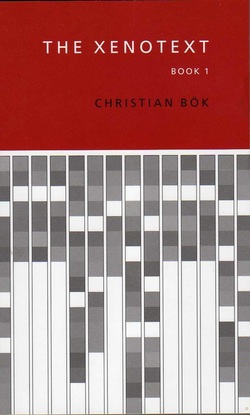
One can read Christian Bök’s The Xenotext, Book I, as a political poem by an author doubtful of its political usefulness. One can place it beside another Canadian xenotext, Earle Birney’s “Vancouver Lights,” as a poem that addresses its only possible future readers as aliens: “O stranger. Plutonian descendant or beast in the stretching night-- there was light.” In Bök’s poem there were also once sonnets, and meadows with honey-collecting bees. Xenotext – a text for strangers.
Both texts reflect the desperate material conditions of their times – Birney’s the abrupt 1939-40 diversion of human creativity and the planet’s resources to the waging of a global war, Bök’s the growing realization that human extinction may be only few decades and degrees celsius distant. Irreversible global warming – a phenomenon which the banality of social thinking seems likely to allow to happen – promises humanity a demise similar to that envisaged by Neville Shute’s On the Beach – a demise that is understood through an understanding that has been attained too late for action. Bök’s project to preserve both a poem and poetry itself in the DNA of an almost indestructible bacterium can be read as an act of despair similar to cryogenic freezing of a loved one’s body for possible revivification years or centuries hence. Or it’s like the burial of a time capsule by someone acutely aware that time
 RSS Feed
RSS Feed